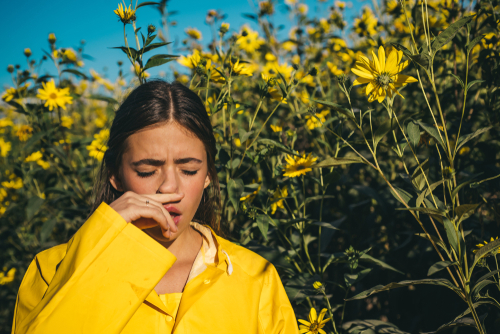
Almost everyone has allergies to something. Even allergies that are specific to the eye are more common than you would think!
They occur when your eyes react negatively to some form of allergen. When your eyes react, it causes them to release histamines.
Histamines are produced to fight off invaders, but with allergens, your body is usually overreacting. Histamines in the eye can cause swelling, burning, itching, watering, and other symptoms.
Most eye allergies are annoying but harmless, and only need mild treatment to remedy. But some people may suffer from extreme allergic conjunctivitis.
This can lead to serious damage if left untreated. Keep reading to find out if eye allergies can cause other eye conditions!
Severe Eye Allergies and When To See a Doctor
A severe allergic reaction in your eyes will include many typical allergy symptoms but they are more intense. They include:
- Fierce pain in the eyes
- Strong light sensitivity
- Difficulty seeing
- Extreme redness
- Experiencing an aversion to opening your eyes
- Potentially developing blisters around the eyes
If you experience any of these symptoms, seek medical attention as soon as possible.
Severe allergic conjunctivitis is most common for those that already suffer from or have a history of allergies. These include conditions such as eczema, hay fever, and asthma.
If you are experiencing symptoms that are not severe but persistent, you should still see a doctor. When it comes to an allergic reaction, you should never assume that it’s not serious.
Treating and Preventing Eye Allergies
The best way to deal with allergies is to reduce your contact with the allergens. Depending on what you are reacting to, this could mean:
- Avoiding the outdoors during high pollen counts. Pollen is a very common allergen, especially during the spring. You can check one of your local news sources to find out if that day’s pollen counts are going to be high and low, although it is typical for them to be higher during early morning and around dusk.
- Clean your home frequently using a damp cloth. This will collect allergens such as pollen, dust, and pet dander without it becoming airborne and getting in your eyes.
- Keep your windows closed. Stopping outside allergens from coming in will mean less clean up.
- Invest in an air purifier. These will passively collect airborne allergens and filter them out.
If you are still experiencing symptoms you should use eye drops and cold compresses. Stop using makeup or contacts until the issue is resolved.
Above all, do not rub your eyes. This will only make your eyes more irritated in the long run, and could potentially cause damage.
Rubbing your eyes is never a good idea even if they are itchy. If you find that your eyes are itchy, use eye drops or artificial tears instead. This can help flush out any allergens that may be irritating your eyes.
To learn more about eyes, how they work, and how you can take care of them, schedule an appointment at Vision Care of Maine in Bangor today! There’s never a bad time to make your vision a priority!
